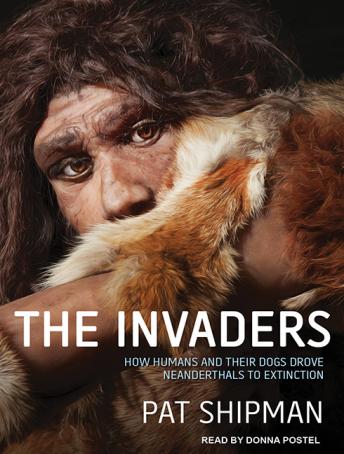


First Neanderthals disappeared to be followed by lions, mammoths, hyenas and bison over the succeeding millennia. Once they joined forces, they dominated the food chain in prehistoric Europe – though this success came at a price for other species. Previously they separately hunted the same creatures, with mixed results. The answer, she argues, was the creation of the human-wolf alliance. “Even if you brought down a bison, within minutes other carnivores would have been lining up to attack you and steal your prey,” said Shipman. It would have been a tricky business made worse by competition from lions, leopards, hyenas, and other carnivores, including wolves. Both Neanderthals and modern humans hunted them with spears and possibly bows and arrows. It was a win-win situation.”Īt that time, the European landscape was dominated by mammoths, rhinos, bison and several other large herbivores. “This meant the dogs did not need to approach these large cornered animals to finish them off – often the most dangerous part of a hunt – while humans didn’t have to expend energy in tracking and wearing down prey. “Then humans would have killed them with spears or bows and arrows. “Early wolf-dogs would have tracked and harassed animals like elk and bison and would have hounded them until they tired,” said Shipman. We tamed some and the dogs we bred from them were then used to chase prey and to drive off rival carnivores, including lions and leopards, that tried to steal the meat. Modern humans formed an alliance with wolves soon after we entered Europe, argues Shipman. Shipman agrees with the latter scenario, but adds a twist. Most argue that modern humans – armed with superior skills and weapons – were responsible.

The question is: what finished them off? Some scientists blame climate change.

However, within a few thousand years of our arrival, they disappeared. The continent was then dominated by our evolutionary cousins, the Neanderthals, who had lived there for more than 200,000 years. They began to emigrate around 70,000 years ago, reaching Europe 25,000 years later. Modern humans are known to have evolved in Africa. If Shipman is right, she will have solved one of evolution’s most intriguing mysteries. “But then we formed an alliance with the wolf and that would have been the end for the Neanderthal.” “At that time, modern humans, Neanderthals and wolves were all top predators and competed to kill mammoths and other huge herbivores,” says Professor Pat Shipman, of Pennsylvania State University.


 0 kommentar(er)
0 kommentar(er)
